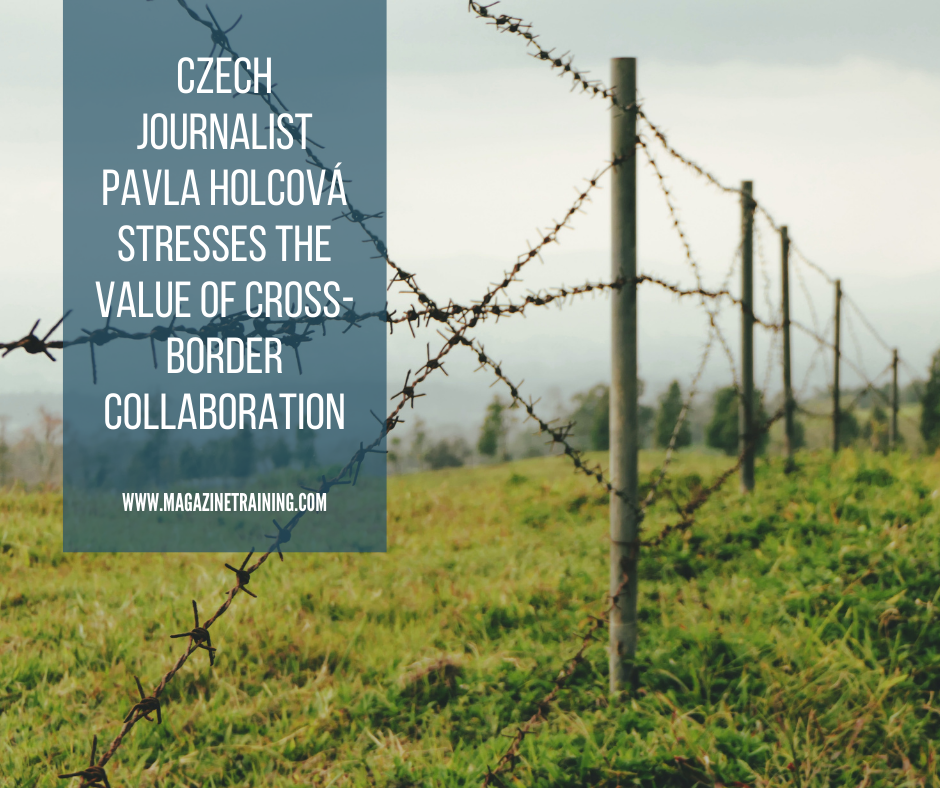
If not for Czech investigative journalist Pavla Holcová, the world might not know the true extent of ties between the Italian mafia and the Slovak government, or who was allegedly behind the murder of Slovak journalist Ján Kuciak and his fiancee. We certainly wouldn’t know enough.
Nor would we understand how Czech Prime Minister Andrej Babiš moved millions of euros through offshore companies to buy luxury real estate in France, as Holcová uncovered in her most recent investigation for the Pandora Papers.
Less than a week later, Babiš was narrowly defeated in his reelection bid. “[He] lost the election. We don’t know how much of it was a result of our investigation, and how much people are just tired of him,” Holcová told IJNet. “He is now going to the opposition. He won’t make the government. That’s the ongoing impact.”
The founder of the independent Czech Center for Investigative Journalism, and an editor with the Organized Crime and Corruption Reporting Project (OCCRP), Holcová has carried out investigations not just with the recent Pandora Papers, but also as part of the previously released Panama and Paradise Papers, and the Azerbaijani and Russian Laundromat investigations. Her reporting has tracked billions of euros in illegal arms sales to Syria during the war, and uncovered secret investments made by the former chief of the Macedonian secret police, Saso Mijalkov. No stranger to global recognition for her reporting, this year she is one of ICFJ’s Knight International Journalism Award winners
Holcová is the first to credit the pivotal role cross-border collaboration has played in her reporting. Working with other journalists has enabled her to expand the scope of her investigations. It acts, too, as a safeguard for both the stories she works on, and her colleagues involved with them. “[Collaboration is] absolutely crucial because it [provides] you with the data that you wouldn’t otherwise be able to reach, because you can rely on someone else who will help you,” she said. “We send out a strong message that, if I won’t be able to publish the story, the others will do it. The one who would like to hurt me would need to hurt the whole network.”
This is precisely what unfolded in the aftermath of her colleague Kuciak’s murder in 2018. Holcová and a team of journalists and newsrooms in Slovakia and the Czech Republic obtained materials from police investigations into businessman Marian Kočner, whose financial crimes Kuciak had been investigating. “We were able to finish all the stories [Kuciak] started, because we collected 70 terabytes of the data,” explained Holcová, referring to what became known as the Kočner Library investigation. “With this data, we were able to finish and expose the wrongdoing of those people, and the impact was that the system that was built on corruption collapsed.”
Holcová considers the Kočner Library investigation her most successful. Slovak politicians at the highest levels — president, prime minister, regional officials — stepped down. Top police officials resigned, and charges of corruption and obstruction of justice were brought against 21 judges. “The government was toppled because the system they created allowed it,” she said. “We were able to expose the links between powerful and rich people to politicians and the judiciary. Only after, the system collapsed.”
by David Mass, International Journalists’ Network
Photo by Utsman Media on Unsplash
Related posts
Magazine Training International’s mission is to encourage, strengthen, and provide training and resources to Christian magazine publishers as they seek to build the church and reach their societies for Christ.

